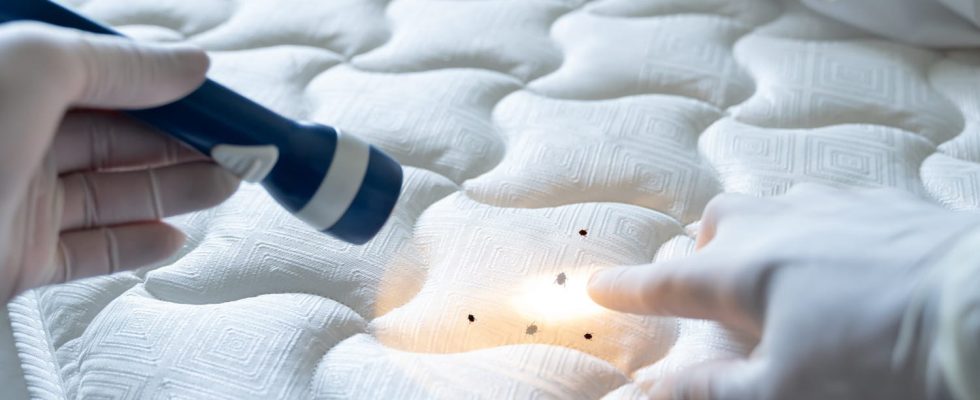The hype surrounding bedbug infestations has sparked the interest of Internet scammers, who are quick to sell dangerous “miracle” products or pose as professionals. Be careful then!
At the moment, the bedbug is in the spotlight in the news, after several cases of infestations in cinemas, public transport, but also certain educational establishments. It’s impossible to have missed the media hype around this little beast, which is hitting the headlines, to the point of generating real psychosis. Also, people who are infested – or believe they are – are likely to panic and urgently seek quick solutions to get rid of them. That was all it took for the scammers to jump at the opportunity! As recalled UFC-Que Choisir, the General Directorate for Competition, Consumer Affairs and Fraud Control (DGCCRF) has recorded an alarming increase in the number of reports on its Signal Conso application in recent months, to the point that the Minister of Health himself even sounds the alarm. Also, don’t panic and be extra vigilant on the Internet!
Bedbug scams: an irritating situation to say the least
Bedbug scams take two very distinct forms. First, individuals who are plagued by these pests may be tempted to order any treatment on the Internet, desperate for a miraculous product. In fact, affected people generally try to get rid of bedbugs themselves with commercial products, such as traps, repellents, fumigators, sprays or aerosols. The problem is that these solutions are often ineffective. Also, we may be tempted to turn to more powerful products, but this is not without danger, because they can prove to be seriously toxic for humans. The National Agency for Food, Environmental and Occupational Health Safety (ANSES) had already warned about these questionable practices a few months ago.
#Scams | Faced with the increase in reports of the presence of bedbugs in recent weeks, scams are increasing.
If in doubt, consult the list of companies recommended for detecting and treating infestations at: https://t.co/FqQ79iPgCI pic.twitter.com/aqXanLIc2E
— Prefecture of the Île-de-France region (@Prefet75_IDF) October 3, 2023
Between 2007 and 2021, poison control centers treated 1,056 cases of exposure to bedbug control products, including twelve serious poisonings, five involving children. One of them unfortunately died. This is therefore not a new problem, but the phenomenon is increasing due to the current anxiety-provoking context. It is therefore advisable to remain as wary as possible, by systematically checking the effectiveness, legitimacy and dangerousness of the products you wish to purchase using customer reviews or user feedback on forums.
Bedbugs: a spread of scams on the Internet
In addition to the multiplication of sales of more than questionable insecticides, another danger threatens people infested by bedbugs: fake professionals. We strongly advise you not to call on the first person through a classified ad or on the Internet, even if they promise effective and rapid eradication, otherwise you will find yourself paying dearly for a totally ineffective service. Better to call on a craftsman certified by the public authorities, through the CS3D (Chambre syndicale 3D), a partner union of the Ministry of the City and Housing, which opened a site specializing in bedbugs listing serious and reliable professionals.
To be on the safe side, it is best to contact at least two pest exterminators to compare their quotes. Above all, avoid “specialists” who offer a remote diagnosis – whether online, by telephone or by videoconference – and favor one carried out directly on site. Indeed, the price of the intervention can vary considerably depending on many factors, such as the surface area of the accommodation, the level of infestation and the size of the rooms. A true professional must therefore go to the site to properly assess the situation. Please note that it is impossible to guarantee that once pest control is completed, the bedbugs will not return. So don’t believe the charlatans who guarantee effective treatment over time! If you spot a scam, report it immediately on the Signal Conso platform.
